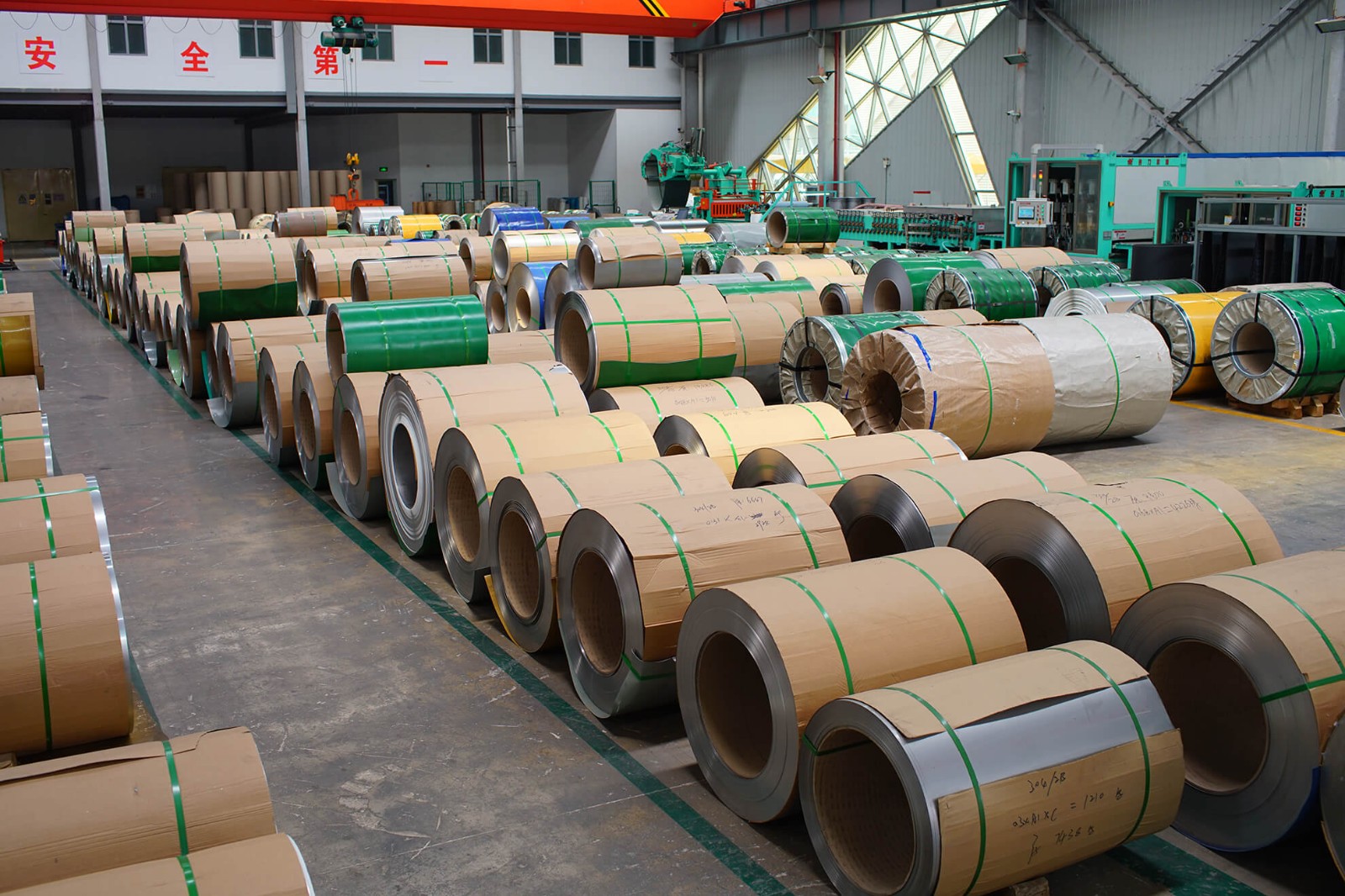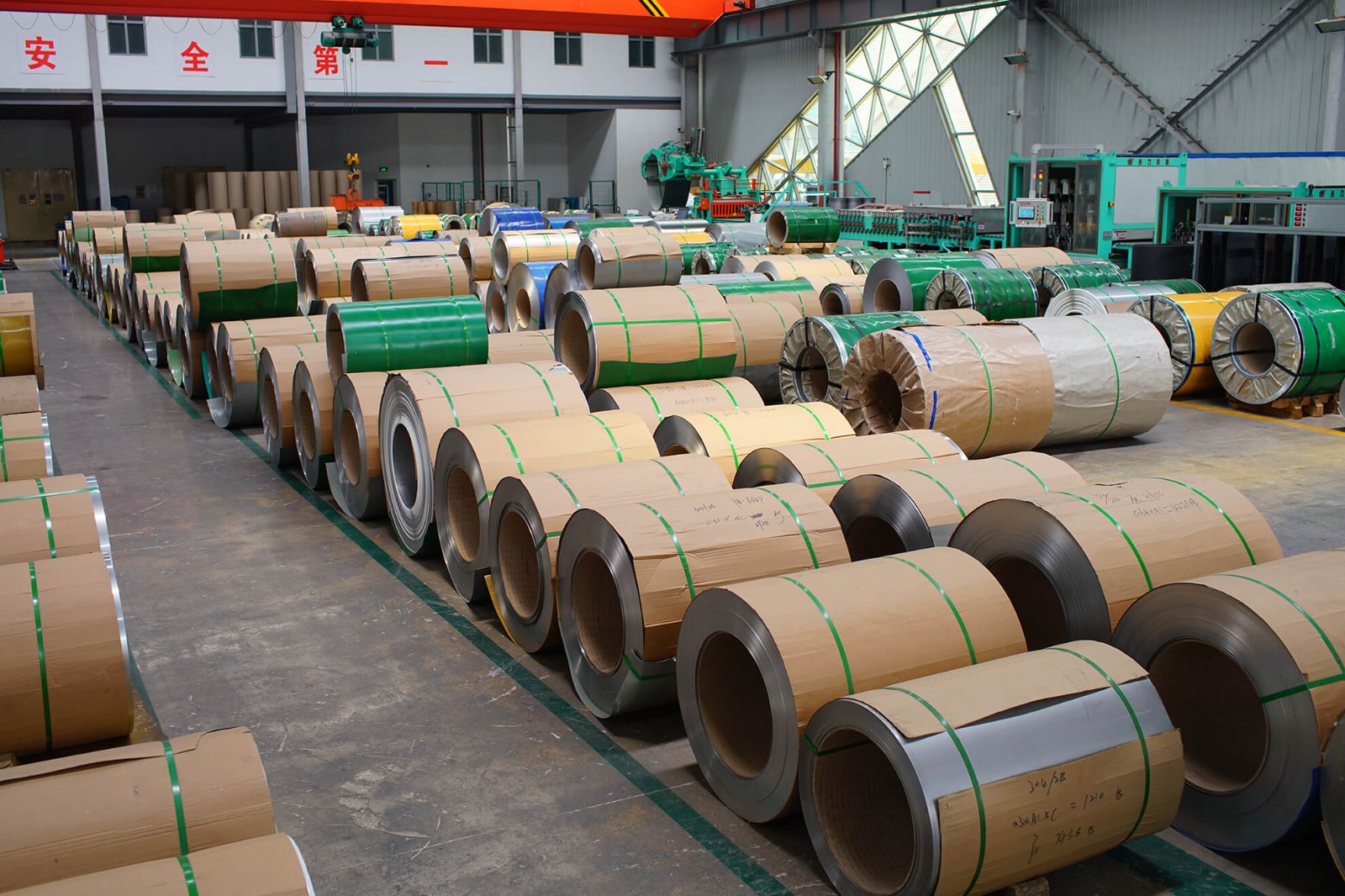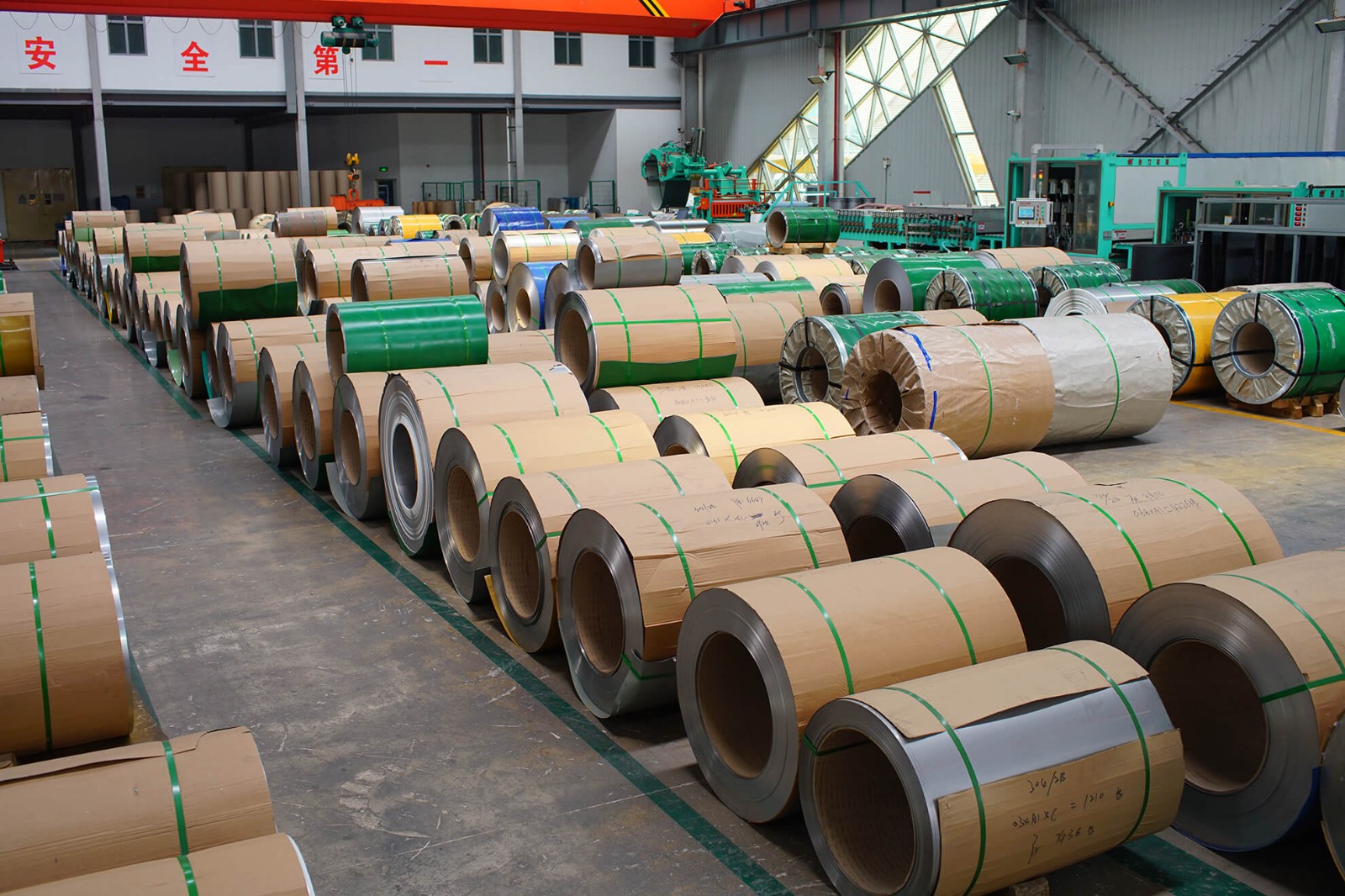
400 series stainless steels are alloys of iron, carbon and chromium. Because it does not contain nickel, it is a nickel-saving stainless steel, also known as stainless steel. 400 series stainless steels are normally magnetic due to their martensitic structure and the presence of iron. 400 series stainless steel has strong resistance to high temperature oxidation, and its physical and mechanical properties are further improved compared with carbon steel. Most 400 series stainless steels can be heat treated. At present, 400 series stainless steel is widely used in automobile exhaust, elevators, washing machine inner tubes, kitchenware, home appliances, medical equipment, water heaters, roof panels, curtain walls and power plant equipment and other industries.
Hot-rolled stainless steel coils are processed through high-temperature hot rolling process and have high strength and hardness;
400 series stainless steel coils mainly include:
1. Ferritic stainless steel (US ASTM grade): 405, 430, 430F, 434;
2. Martensitic stainless steel (US ASTM grade): 403, 405, 410, 416, 420, 431, 440A, 440B.
400 series stainless steel coils are relatively cheap and are generally used for civilian products. Generally, it should be selected under hot chlorination environment. It can partially replace 300 series austenitic stainless steel in civil and industrial fields such as kitchenware, home appliances, decoration, automobile exhaust systems, and petrochemical industries.
The production efficiency of hot-rolled finished coils is much higher than the existing hot-rolling production process, and the end performance of hot-rolled coils is good.
1) Hot rolling: the rolling temperature is 780-880°C;
400 refers to the zero-adjusted temperature of 780 to 880°C for the final hot rolling of stainless steel to refine the hot rolling deformation structure and strengthen the hot rolling deformation energy;
2) Coiling temperature: adopt a coiling temperature of 730~850°C;
400 is that the stainless steel hot-rolled coil adopts a high-temperature coiling temperature of 730-850°C to obtain a well-annealed and suitable hot-rolled coil structure, and prepare and store the well-annealed structure for the structure;
3) Temperature-raising heating: feed materials above 300°C; rapidly heat to 750~850°C at a speed greater than 85°C/h;
400 is the stainless steel coil when the feed is above 300°C, the temperature of the steel roll is always higher than the martensitic cooling transformation temperature, the coil structure does not produce martensitic transformation, and the strip coil does not have a martensitic structure, and the temperature is raised by rapid heating mode, the programming rate is greater than 85°C/h;
4) Insulation: the external temperature of the strip coil reaches 750~850° C. insulation temperature, and starts insulation; when the center temperature at the bottom of the strip reaches the insulation temperature for more than 2 hours, stop heating;
5) cooling: including the following steps:
a) The belt-type electric heating jacket is cooled for 2 to 5 hours;
b) Remove the heating jacket and use the cooling cover to cool down;
c) Cool the center temperature of the strip bottom to 300~200°C, remove the cooling cover and let it cool naturally.
400 series stainless steel has the following characteristics:
1) Good oxidation resistance: 400 series stainless steel contains high hardness chromium, which can effectively resist corrosion and oxidation.
2) Excellent stress corrosion resistance: 400 series stainless steel can maintain relatively stable performance under high temperature, high pressure and other environments, and has good stress corrosion resistance.
3) Large thermal conductivity and small expansion coefficient: The product material has good thermal conductivity and expansion, and is not easy to deform during use.
4) Wide application: 400 series stainless steel is widely used in environmental protection industries such as water industry, seawater desalination, industrial waste gas, garbage and sewage treatment.
The wide range of applications of 400 series stainless steel are as follows:
1) Water storage, transportation, delivery, regeneration, seawater desalination and other fields.
2) Environmental protection industry: industrial waste gas, garbage and sewage treatment plants are made of stainless steel, especially in large cities and coastal cities, the amount of stainless steel used may even exceed that of European and American countries. Such as stainless steel flagpoles, street guardrails, overpass signs, trash cans, residences and traffic command booths, etc.
3) Manufacturing: 400 series stainless steel is mainly used to manufacture parts resistant to atmospheric, water vapor, water and oxidative acid corrosion.
400 series stainless steel is a widely used material, and its classification and characteristics have been fully applied in different fields. Ferritic stainless steel and martensitic stainless steel each have special properties and can be selected according to different needs. With the development of refining technology outside the furnace, the development prospect of ferritic stainless steel is very optimistic.







|

|

|

|

|
| Timely Info | Independent | Platform | Multiple guarantees | Self-operated storage |
| About us | Channel | Useful tools |
|---|---|---|
| About China Steel Market | Prices | Steel Weight Calculation |
| Contact Us | Answers | Why Choose Us |
| Terms & Conditions | Inventory | |
| Privacy Policy | Help |
Hot search words: